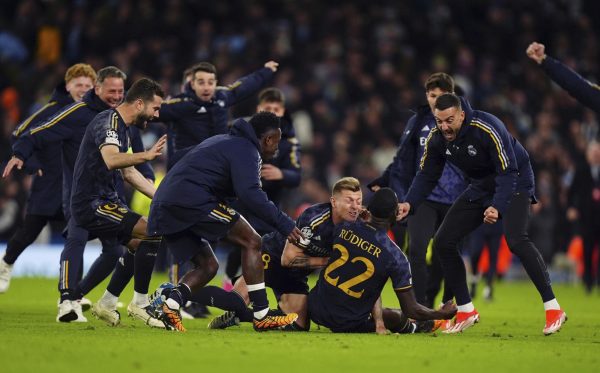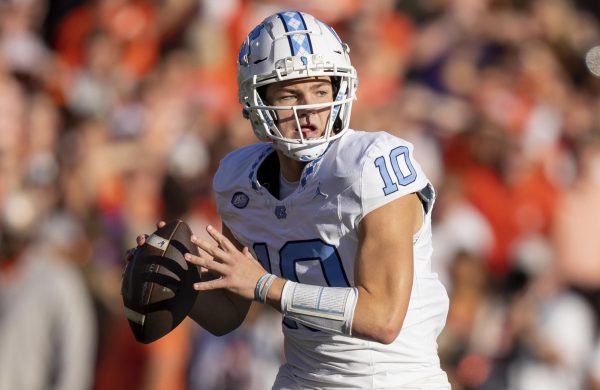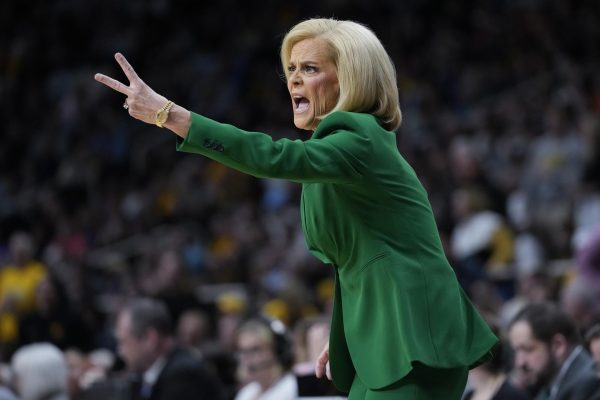Countdown to South Africa: Group E
Group E is headlined by superstar attackers and teams known for their offensive prowess. With the notable exception of the Netherlands, none are known for defense. Combine the two, and you get a group with the potential for a ridiculous explosion of goals. None of the nations have ever won a World Cup, and all come in with lofty aspirations and high expectations. All of these conditions lend themselves to surprises and upsets, so be sure to expect anything in this curious collection of countries.
Cameroon
Many analysts have said that no nation relies more on one player than the United States does with Landon Donovan. Those analysts are wrong. Cameroon’s success at the World Cup rests solely on the broad shoulders of forward and captain Samuel Eto’o.
Eto’o is one of the most clinical strikers in the world, bagging 130 goals in 200 matches with Barcelona, for whom he played from 2004-2009. He capped his Barca career with a ridiculous 30 goals in 36 league matches last season, before sealing a summer transfer to Italian champions Inter Milan. With Inter, his role has changed and his goalscoring has subsequently declined (11 goals in 33 matches), but the finishing abilities that have marked his career have not disappeared. His 78th minute goal against Chelsea at Stamford Bridge last week was lauded by analysts and fans around the globe, as he managed to slot the ball past both goalkeeper and post, with no room for error, from about 20 yards out. For his country, Eto’o has tallied 44 goals in 94 games, a respectable total, given opposing defenses’ unwavering focus on him.
This is not to say that Cameroon does not have talent on other parts of the field. 26-year-old goalkeeper Idriss Carlos Kameni is frequently included in discussions of the world’s most talented goalkeepers, and has been a part of the Cameroon national team since he was 17. Rigobert Song and Geremi Njitap are the anchors of the backline, both having amassed over 100 caps for Cameroon in their careers. In midfield, Arsenal’s Alexander Song should also not be overlooked, as he was the only Cameroonian named to the 2010 Africa Cup of Nations all-tournament team.
These players, however, despite their collective experience and talent, do not compare to Eto’o in terms of importance to the team. They alone might be at the core of a decent African team, but without Eto’o, that is simply all they would be. Eto’o has the ability to propel this highly-motivated side deep into the tournament, and his performance will be the primary determining factor of Cameroon’s success in South Africa.
Player to watch: Samuel Eto’o.
Denmark
Denmark’s national football team advanced to the 2010 World Cup by finishing first in what was one of the toughest groups in UEFA. The Danish completely dominated a group highlighted by 2006 World Cup semifinalist Portugal, as well as traditional powers Sweden and Hungary. Denmark finished with a 6-1-3 record, with their only loss coming in the final game of qualifiers after they had secured passage to the World Cup. One of the biggest factors that lead to the Danes’ qualification was their ability to treat the road as their second home. Denmark went an unexpected 3-0-2 on the road, producing an impressive comeback victory in Portugal, scoring three times in the last six minutes to win 3-2. Other away results included wins over Sweden and Malta and ties against Hungary and Albania.
Denmark is no newbie to the World Cup, having taken part in the tournament three times before. Its most recent appearance was in the 2002 World Cup that took place in Japan and South Korea. In it, Denmark finished first in Group A, before being knocked out in the Round of 16 by England. Their best performance was in France 1998, where they reached the quarterfinals before falling to Brazil in the quarterfinals in one of the best matches of the tournament.
Player to watch: Arsenal’s Nicklas Bendtner is currently the second leading scorer on the team among active players. The leader, Dennis Rommedahl, has a five goal advantage, but has 61 more caps than Bendtner. This young talent scored three of Denmark’s 16 goals in the qualifiers and has scored four in 18 games with Arsenal, missing two and a half months of the season due to a groin surgery. Something working in his favor is that despite his young age he exudes a great amount of confidence on the field. He, along with veteran Jon Dahl Tomasson, currently out of action with a heel injury, is expected to score the goals that will take Denmark far in the World Cup.
Japan
Japan advanced to South Africa with remarkable ease, finishing second in their final qualifying group, matched with Australia, Bahrain, Qatar and Uzbekistan. They did not win the group because of their inability to take of business at home, going 1-0-3, only defeating Bahrain. The Japanese played a lot better away from home, winning three and losing only one, the loss coming against Australia. Their defense, however, is a question mark, given that they allowed six goals against traditionally weak teams. The Japanese will need to find answers to their backline questions, if they want to have any chance of advancing to the second round.
Japan has participated in three consecutive World Cups. The Japanese have not been very successful in the tournament, except for in 2002, when they co-hosted the event with South Korea. Their last appearance was in Germany, where they put up a disappointing performance. They only obtained one point in three games, scoring two goals and allowing seven, while losing to Australia and Brazil while impressively drawing Croatia, before exiting the tournament. Japan’s best performance was in 2002, when they reached the Round of 16 before falling to eventual third-place finisher Turkey, who beat them, 1-0.
Player to watch: Yokohama’s Shunsuke Nakamura is the leading goal scorer among active players in the Japanese squad and is sixth all-time. His decade of experience will aid him in helping the younger guys adapt to the level of competition and he will be counted on scoring timely and important goals for a Japanese team thirsty for success. He also has a dead-ball striking ability that is almost unparalleled in the world, leading to favorable comparisons with David Beckham. If he scores often, there is a possibility that Japan might make some noise in this summer’s tournament.
Netherlands
Always the bridesmaid, never the bride. The Dutch, despite being at the forefront of European football, have never managed to win a World Cup; their only major international title came at the European Championship in 1988. This lack of success is shocking, given the Netherlands’ status and prestige in the game. Ever watch Arsenal or Barcelona and marvel at how beautifully they play the game? Thank Rinus Michels, the Ajax Amsterdam manager who pioneered “total football,” where players have a fluid role on the pitch, rather than being in rigid positions. This philosophy still pervades the Dutch national team to this day, and their football, as a result, is beautiful to watch.
The Netherlands rampaged their way to South Africa 2010, winning all eight of their UEFA qualifying matches. They handily defeated Scotland and Norway, both dark horse candidates to qualify for the tournament. The Dutch dominated their group by playing incredible defense, earning clean sheets in all of their home qualifying matches. This brilliant defensive line is led by captain Giovanni van Bronckhorst, the former Arsenal and Barcelona man, who has amassed 97 caps for his country. At 35 years of age, van Bronckhorst brings an incredible amount of international experience to a Dutch side that has so often fallen short of expectations on the big stage. His influence will also be critical in keeping young defensive midfielder Nigel de Jong in line. De Jong is an incredibly rough player, prone to emotional mistakes and reckless tackles, exemplified best by his shin-snapping tackle on American midfielder Stuart Holden in a friendly between the two countries on March 3.
What sets the Netherlands apart from the rest of the world, however, is their attack. Midfielder Rafael van der Vaart and Wesley Sneijder are two of the most skilled players in the world with the ball at their feet. Sneijder’s abilities almost single-handedly put his club, Inter Milan, through to the UEFA Champions League quarterfinals last week when they destroyed English club Chelsea in London. Against the less-talented defenses of Japan, Cameroon and Denmark, there is no telling what these two will be able to accomplish.
Player to watch: Arsenal forward Robin van Persie. Van Persie has been injured for what seems like five years, returning for little spurts of play here and there, but he inevitably succumbs to some long-term injury. When healthy, he is one of the best strikers in the world, and would give the Netherlands a lethal point-man in their attack. The Dutch will almost certainly advance out of their group, but van Persie has the ability to propel the Netherlands to their first World Cup final in 32 years.








